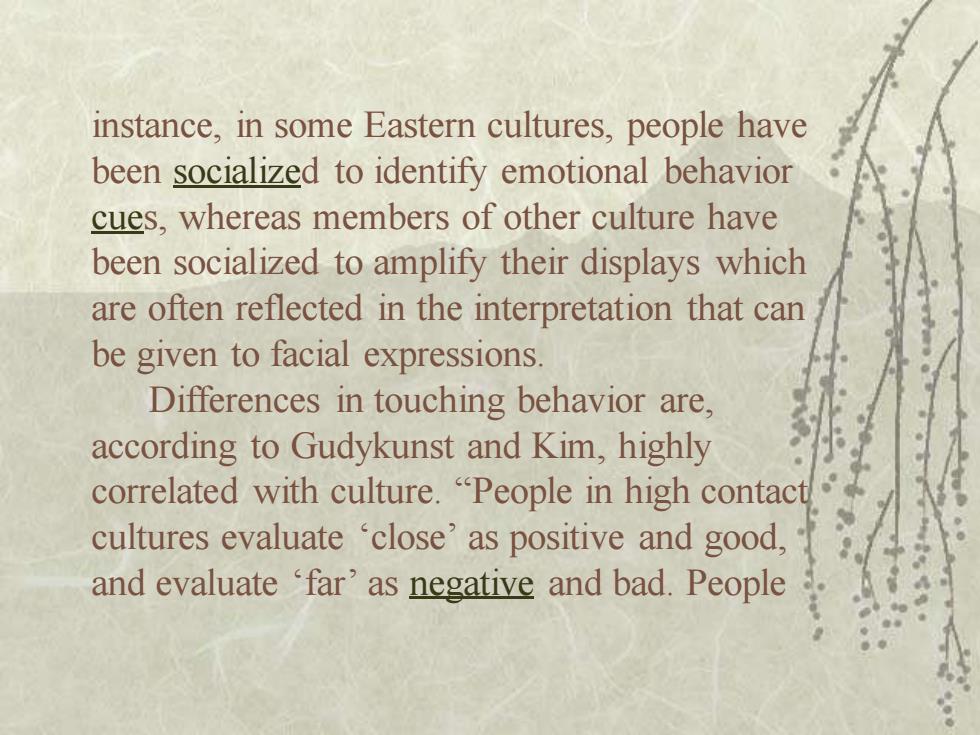正在加载图片...

instance,in some Eastern cultures,people have been socialized to identify emotional behavior cues,whereas members of other culture have been socialized to amplify their displays which are often reflected in the interpretation that can be given to facial expressions. Differences in touching behavior are, according to Gudykunst and Kim,highly correlated with culture."People in high contact cultures evaluate 'close'as positive and good, and evaluate far'as negative and bad.People instance, in some Eastern cultures, people have been socialized to identify emotional behavior cues, whereas members of other culture have been socialized to amplify their displays which are often reflected in the interpretation that can be given to facial expressions. Differences in touching behavior are, according to Gudykunst and Kim, highly correlated with culture. “People in high contact cultures evaluate ‘close’ as positive and good, and evaluate ‘far’ as negative and bad. People